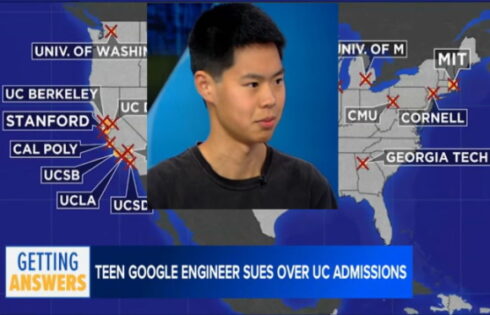
‘Sweeping generalizations based on inadequate science’
Research indicating new medical school graduates are avoiding residency programs in states with abortion bans is being met with skepticism by some experts.
The analysis by the Association of American Medical Colleges found that fewer recent graduates applied to medical residency programs in 2023 in states where elective abortions were banned or restricted when compared to states where abortion is legal.
According to AAMC researchers Kendal Orgera and Atul Grover, the number of applicants to residency programs in states with near-total abortion bans declined by 4.2 percent, compared with a 0.6 percent drop in states where abortion is legal.
The “disproportionate decreases” in applicants occurred across all medical specialties, Orgera and Grover wrote.
The researchers wrote the decrease is a trend that they also observed in 2022, the year when the U.S. Supreme Court overturned Roe v. Wade and began allowing states to ban abortions again.
“As of April 1, 2024, 14 states have enacted full bans on abortion (up from 13 in 2023),” they wrote. “Because these policy decisions appear to affect where physicians plan to practice, state governments and health care leaders need to consider the potential impact of those decisions on the physician workforce.”
A spokesperson for AAMC told The College Fix in an email late last month that the authors were not available for questions. The Fix asked what other reasons students may have for avoiding states with abortion restrictions and how the trend could affect hospitals and medical schools in these states.
Meanwhile, a medical researcher at the Charlotte Lozier Institute expressed skepticism about the findings.
Dr. Ingrid Skop, vice president and director of medical affairs at the pro-life research organization and a practicing OB-GYN, told The Fix in a recent email the researchers make “sweeping generalizations based on inadequate science refuted in their own reporting.”
“Based on their articles, every state saw a decline in residency applications,” Skop said. “They credit this, in part, because medical students are being encouraged to submit fewer applications.
“AAMC also admits in their own analyses that they can’t prove motivations and reasons for students applying to specific programs,” she told The Fix.
MORE: Medical students face pressure to participate in elective abortions
According to the AAMC analysis, the total number of residency applications submitted by recent medical school graduates decreased by over 100,000 in 2023, compared to the previous year.
“The reduction in applications per person resulted in applicants (on average) applying to programs across fewer states than in previous years, which should be considered when interpreting” their analysis, the authors wrote.
Orgera and Grove also stated they cannot prove the motivation to apply for a residency in a different state is because of pro-life laws.
“It is important to note that these analyses allow us to follow the trends in residency applications but do not provide definitive information about U.S. MD seniors’ motivations and reasons for applying to specific programs,” they wrote.
But the American Association of Pro-Life OB-GYNs said there is a larger problem with the research: the underlying assumption that aborting an unborn baby is health care.
“Medical education should not normalize induced abortion as part of comprehensive health care,” the association told The Fix in an emailed statement. “For example, OB-GYN residency programs should go back to an opt-in system for students who want to obtain induced abortion training as opposed to the current opt-out system that forces students to actively remove themselves from such training, which creates pressure for pro-life students to participate in performing abortions.
“If the purpose of medicine is health and wholeness, medical professionals should not intentionally end the life of one of our patients,” the association stated.
A spokesperson for Students for Life of America, which works with pro-life college students, including medical students, also questioned the analysis and other reports that suggest significant numbers of medical students and residents are avoiding pro-life states.
“It’s a terribly difficult thing to get into medical school, and while I’m sure members of the press found a few people to interview, in fact, as most medical students need to apply to 20-50 schools to get a few offers, this sounds more like a public relations smokescreen than fact,” Vice President of Media and Policy Kristi Hamrick told The Fix in an email last week.
Hamrick, who has two family members currently in medical school, said she is “skeptical of the entire storyline, having been very engaged in the true ins and outs of getting into such difficult programs.”
A 2022 analysis by The College Fix found no proof of similar claims that college students were leaving states due to newly-enacted pro-life laws.
MORE: Journal rejects ‘white’ ‘male’ author’s pro-life article
IMAGE: Photographee/Shutterstock
Like The College Fix on Facebook / Follow us on Twitter






Please join the conversation about our stories on Facebook, Twitter, Instagram, Reddit, MeWe, Rumble, Gab, Minds and Gettr.